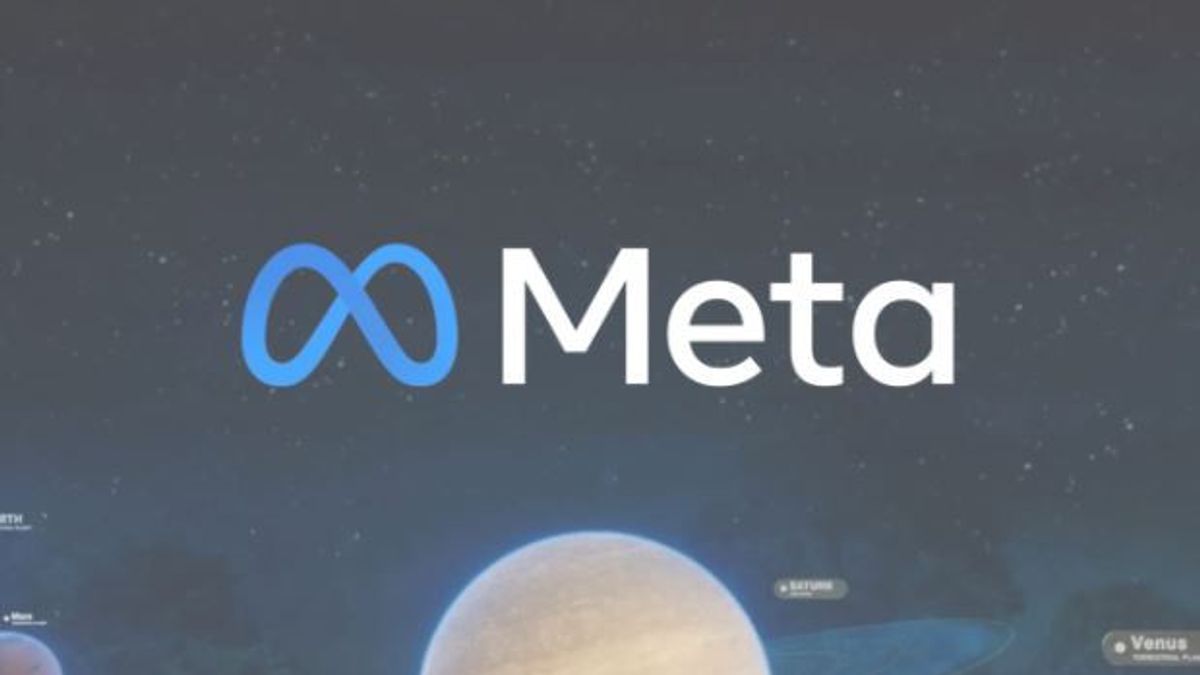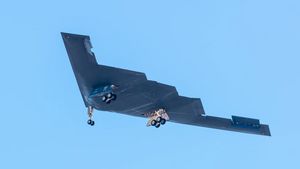JAKARTA - Meta Platforms Inc., owner of Facebook and Instagram, revealed new details about their data center project to support artificial intelligence development, including the development of a custom "family" of chips developed internally.
In a series of blog posts, Meta stated that they are designing the first generation of chips in 2020 as part of the Meta Training and Inference Accelerator (MTIA) program. The goal is to increase the efficiency of the recommendation model used to serve ads and other content on users' homepages.
Earlier, Reuters reported that the company had no plans to widely deploy its artificial intelligence (AI) chip and had been working on a successor. The blog post describes the first MTIA chip as a learning opportunity.
The first-generation MTIA chip was specifically focused on an AI process called inference, in which algorithms trained on large amounts of data make decisions about whether to show a dancing video or a cat meme as the next post on a user's homepage, the blog post states.
Joel Coburn, a software engineer at Meta, stated during a presentation about the new chip that Meta originally used a graphics processing unit (GPU) for inference tasks, but found that the GPU was not suitable for inference tasks.
"Their efficiency is low for real models, even though they have been significantly optimized through software. This makes them difficult and expensive to implement in practice," said Coburn. "This is why we need the MTIA."
A spokesperson for Meta declined to comment on the timetable for deploying the new chips or elaborate on development plans for a chip that can train the models.
Meta has been involved in a massive project to improve artificial intelligence infrastructure in the past year, after executives realized they lacked the hardware and software to support demands from product teams building artificial intelligence-based features.
As a result, the company abandoned plans to widely deploy its own inference chip and started work on developing a more ambitious chip capable of both training and inference, Reuters reported.
Blog post Meta acknowledged that their first MTIA chip struggled with complex artificial intelligence models, but noted that the chip was more efficient at handling models of low to medium complexity compared to competing chips.
另请阅读:
The MTIA chip also uses only 25 watts of power - just a fraction of the power consumption of market leading chips such as Nvidia Corp - and uses an open-source chip architecture called RISC-V, said Meta.
Meta also provided an update on their plans to redesign their data center with more modern networking and cooling systems that are artificial intelligence (AI) oriented. They announced that they will begin construction of their first new data center facility this year.
The new design will cost 31% less and can be built twice as fast as the current Metadata center, an employee explains in a video explaining the changes.
Meta also revealed that they have an AI-based system that assists their engineers in creating computer code, similar to the tools offered by Microsoft Corp, Amazon.com Inc, and Alphabet Inc.
With enhanced data center projects and in-house artificial intelligence chip development, Meta seeks to strengthen their artificial intelligence infrastructure and support product team demands in building artificial intelligence powered features.
The English, Chinese, Japanese, Arabic, and French versions are automatically generated by the AI. So there may still be inaccuracies in translating, please always see Indonesian as our main language. (system supported by DigitalSiber.id)













